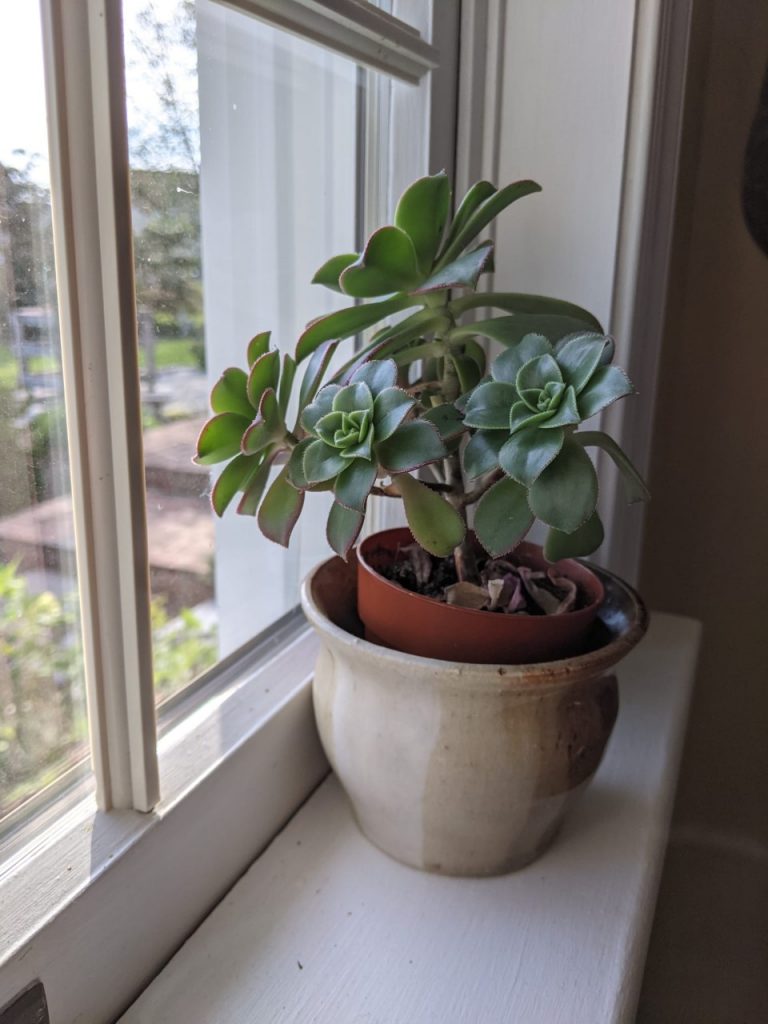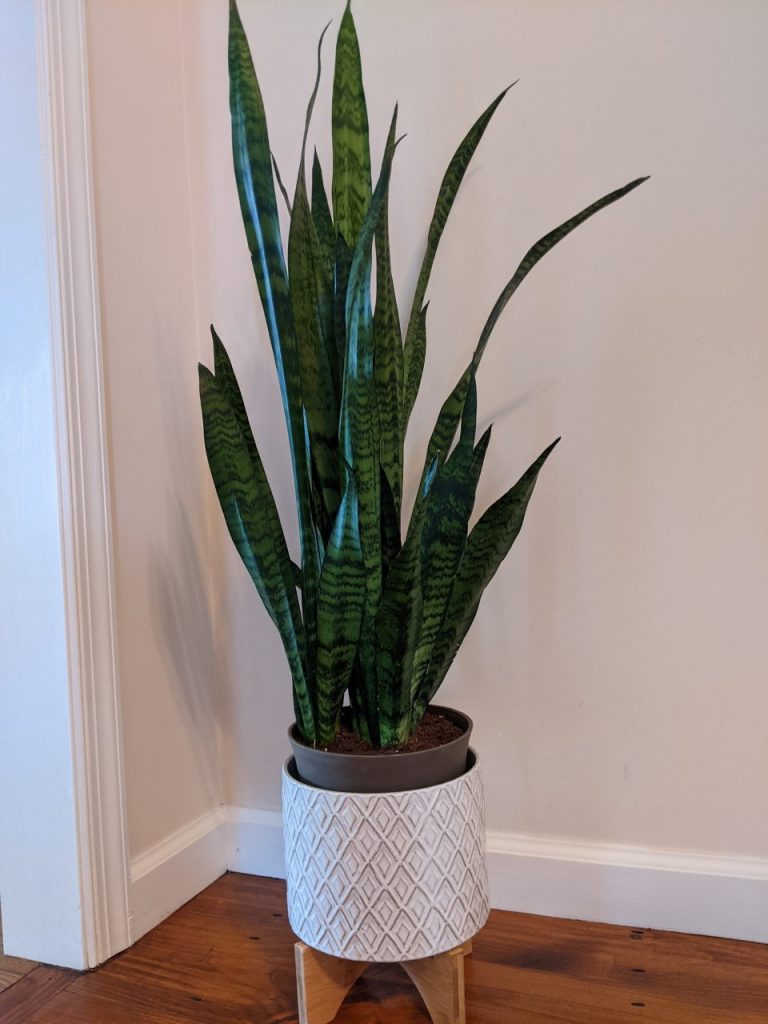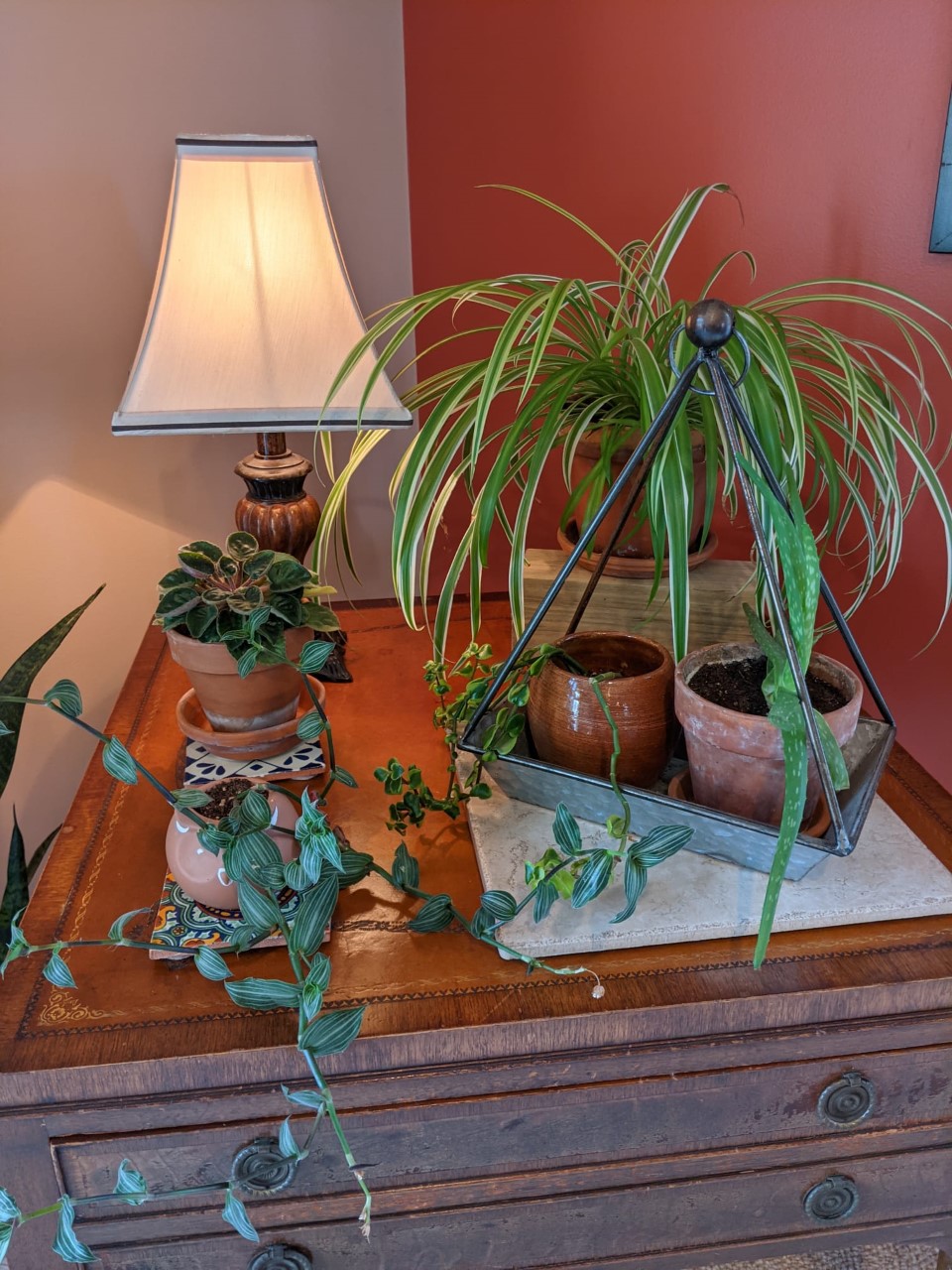I am beginning to enjoy house plants. As a child, I remember a few plants finding their way into our home. It was a welcomed, bi-annual chore to move several of my grandmother’s potted plants outside in the spring and then clean them up and move them back indoors in the fall.
Now that my children are old enough to not tip over the plants to explore the dirt or eat the plants, a few house plants have found their way into our home. Some have bitter-sweet memories attached as gifts from a funeral; some came in bright abstract pots painted by my children; one was an exciting find at a discount grocery store, and others were shared from growing collections of family members.
Plants generally need a combination of soil, light, and water. Choosing the right amount of sunlight, soil type, and proper drainage combo varies with each plant variety. Now, I can make most plants survive, and most of them are fine and happy. However, the spider plant I have growing in a corner shelf that I never bother to rotate is not healthy. My vining pathos plant is luscious and deep green; however, if I experimented with different lighting, I wonder if it is actually a variegated leaf variety waiting to be exposed.

If I treat each plant equally, with the same pot, soil, and sun-exposure, and put them on the same watering schedule, with equal amounts of fertilizer and pruning, they might survive, but they would not thrive. They share one home, but these are all different plants. Their needs may overlap, but each requires different attention.

It would not be wise to water my snake plant like I do my palm plants as my snake plant would suffer root rot. Currently I prefer my arrowhead to be a bushy plant, so I need to prune it to keep it from vining and taking over. For a variety of plants to thrive and flourish in my one household, each plant needs to be tended in its own way. This is equity.
In our lives, equity means every person is their own God-created, perfectly beautiful plant. Every person’s personality, culture, race, life stage, gender, economic status, health, relationships, and life experiences impact what sun exposure, fertilizer, pruning, watering, soil type, and frequency of re-potting is needed for them to thrive.
Take a walk with the Holy Spirit through the household of your life. Listen to the Creator of the Garden of Eden. Look inside you. What plants in you need to be pruned? What needs to be re-potted or fertilized?
Look around you. What plants in your household, workplace, small group, congregation, community, country, and world are straining for sunlight? What parts are waterlogged and suffering root rot? Ask the Holy Spirit to direct your actions and inactions toward Holy Equity.
Creator God, hear our prayer.

“Can papyrus grow where there is no marsh? Can reeds flourish where there is no water?
– Job 8:11, NRSV
The opinions expressed in articles posted on Mosaic’s website are those of the author and may not reflect the official policy of Mosaic Conference. Mosaic is a large conference, crossing ethnicities, geographies, generations, theologies, and politics. Each person can only speak for themselves; no one can represent “the conference.” May God give us the grace to hear what the Spirit is speaking to us through people with whom we disagree and the humility and courage to love one another even when those disagreements can’t be bridged.
